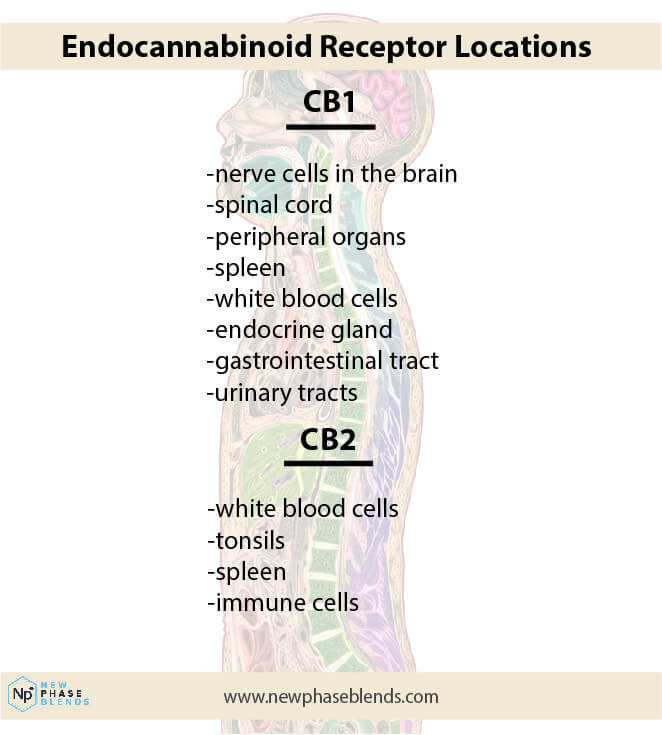Living with diabetes presents daily challenges in maintaining healthy blood sugar levels and managing various symptoms. As more people seek natural alternatives to support their diabetes management routine, CBD (cannabidiol) has emerged as a promising option. This comprehensive guide explores the potential benefits of CBD for diabetes patients, backed by scientific research and expert insights.
Understanding the Connection Between CBD and Diabetes Management
Diabetes affects millions of Americans, requiring careful attention to blood sugar levels, diet, and lifestyle factors. While traditional medications remain the cornerstone of diabetes treatment, research suggests that CBD may offer complementary support for managing various aspects of the condition. This has something to do with what’s called the endocannabinoid system.
How CBD Interacts with the Endocannabinoid System
The endocannabinoid system (ECS) plays a crucial role in regulating metabolism, inflammation, and insulin sensitivity. CBD interacts with this system, potentially helping to maintain balance in these vital functions. Research indicates that the ECS directly influences glucose metabolism and energy balance, making it a relevant target for diabetes management strategies.

The Science Behind CBD’s Effects on Blood Sugar
Research into CBD’s effects on blood sugar management has revealed several potential mechanisms of action. Unlike THC, CBD doesn’t activate CB1 receptors in the brain, instead working through other pathways including G-protein coupled receptors and endothelial cannabinoid receptors. Scientists theorize that CBD’s beneficial effects on blood sugar levels stem primarily from its anti-inflammatory and antioxidant properties.
Studies have shown promising results in both animal and human models. In mouse studies, CBD significantly reduced the incidence of diabetes by decreasing pancreatic islets production of destructive insulitis and inflammatory cytokines. In human research, CBD has demonstrated the potential to affect resistin levels – a protein associated with insulin resistance and obesity – and influence glucose-dependent insulinotropic peptide, suggesting possible pathways for improved glycemic control.
An important clinical study of 62 patients with non-insulin-treated Type 2 diabetes investigated CBD’s effects at a dosage of 100mg twice daily. While the results showed some promising indicators for glycemic control, including changes in specific biomarkers, more research is needed to fully understand the optimal dosing and long-term effects. The endocannabinoid system’s role in modulating food intake and energy homeostasis suggests that CBD’s interaction with this system may contribute to its effects on blood sugar management.
Key Benefits of CBD for Diabetes Patients
Recent scientific research has revealed multiple ways CBD may support those managing diabetes. As we examine the growing body of evidence, several key benefits have emerged from laboratory and clinical studies. These findings suggest CBD could play a supportive role in comprehensive diabetes care through various mechanisms.
Pancreatic Health and Function
Research has shown that CBD may help protect and support pancreatic health in several ways. Studies using diabetes mouse models demonstrated that CBD could reduce pancreatic inflammation and help preserve the function of insulin-producing beta cells. Additionally, research indicates CBD may help decrease the destruction of pancreatic islets, which are crucial for proper insulin production and blood sugar regulation.
Metabolic Support and Weight Management
Scientific studies have revealed CBD’s potential role in supporting healthy metabolism. Research conducted on both cells and animal models has shown that CBD may help:
Increase energy expenditure in the body Support glucose uptake in cells Reduce fat accumulation Help reverse insulin resistance Encourage better weight management through multiple pathways
Protection Against Complications
One of CBD’s most promising aspects is its potential to help protect against various diabetes-related complications through multiple mechanisms:
Cardiovascular Health: CBD has demonstrated abilities to reduce inflammation and oxidative stress in blood vessel walls, potentially supporting better heart health.
Nerve Function Support: Research indicates CBD may help with diabetic neuropathy by reducing inflammation and supporting healthy nerve function through multiple pathways.
Vision Health: Studies suggest CBD may help protect the blood vessels in the retina and support eye health through its anti-inflammatory properties.
Brain Health: Early research indicates CBD’s neuroprotective properties may help support cognitive function and brain health in diabetes patients.
Reduction of Diabetes-Related Inflammation
Chronic inflammation plays a significant role in diabetes complications. CBD’s natural anti-inflammatory properties may help reduce inflammation throughout the body, potentially lessening the risk of diabetes-related complications. Studies have shown that CBD can decrease the production of inflammatory markers associated with diabetes.

Prevention of Diabetes-Related Complications
CBD’s antioxidant properties may help protect against oxidative stress, which is elevated in diabetes patients. This protection could potentially reduce the risk of complications affecting the eyes, kidneys, and cardiovascular system.
Choosing the Right CBD Products for Diabetes Management
When selecting CBD products for diabetes management, quality is paramount. New Phase Blends ensures all products undergo rigorous third-party testing to verify purity and potency. Look for products that provide:
- Certificate of Analysis (COA) documentation
- Organic cultivation practices
- Full-spectrum or broad-spectrum CBD options
- Clear labeling of CBD content and other ingredients
Proper CBD Dosage and Usage Guidelines
Finding the optimal CBD dosage requires a personalized approach. Begin with a low dose (10-15mg daily) and gradually increase until desired effects are achieved. Track blood sugar levels and consult with healthcare providers to monitor progress.
For optimal results, consider taking CBD at consistent times each day. Some patients find taking CBD with meals helps maintain steady blood sugar levels throughout the day.
Integrating CBD into Your Diabetes Management Plan
Before adding CBD to your diabetes management routine, consult with healthcare providers about potential interactions with existing medications. Open communication ensures safe and effective integration of CBD into your treatment plan.
Lifestyle Factors for Success
- Combine CBD usage with other healthy habits:
- Regular physical activity
- Balanced, nutrient-rich diet
- Stress management techniques
- Consistent sleep patterns
Safety Considerations and Potential Interactions
CBD may interact with certain diabetes medications, particularly those metabolized by the liver. Regular monitoring of blood sugar levels and medication effectiveness is essential when using CBD. CBD is processed by the liver through the cytochrome P450 enzyme system, which is responsible for metabolizing many diabetes medications. This interaction means that special attention is needed if you’re taking oral diabetes medications like metformin or sulfonylureas
Monitor Your Blood Sugar Responses When Using CBD Products
When beginning CBD supplementation, diabetes patients need to implement a careful monitoring protocol during the initial adjustment period. During the first few weeks, it’s essential to increase the frequency of blood sugar testing to establish clear baseline patterns. Maintaining detailed records of blood sugar readings both before and after CBD use will help identify any direct effects on glucose levels.
As you track these measurements, pay close attention to emerging patterns or notable changes in your blood sugar response to different activities and meals. Throughout this monitoring period, stay in close communication with your healthcare provider, as they may need to adjust your diabetes medication dosage based on your body’s response to CBD. This careful observation period helps ensure a safe and effective integration of CBD into your diabetes management routine.
Conclusion: The Future of CBD in Diabetes Care
The growing body of research supporting CBD’s potential benefits for diabetes patients offers hope for enhanced management options. While CBD should not replace conventional diabetes treatments, it may serve as a valuable addition to a comprehensive care plan. As you consider incorporating CBD into your diabetes management routine, remember to:
Consult with healthcare providers Choose high-quality products from reputable sources like New Phase Blends Start with appropriate dosing Monitor your response carefully Stay informed about new research developments
With proper guidance and quality products, CBD may help support your journey toward better diabetes management and improved overall well-being.
References
Maria Rosa Trentin Zorzenon, Amanda Nunes Santiago, Marco Aurélio Mori, Silvano Piovan, Cler Antônia Jansen, Maria Eduarda Perina Padilha, Simone Rocha Ciotta, Paulo Cezar de Freitas Mathias, Francisco Silveira Guimarães, Rubia Maria Weffort de Oliveira, Paula Gimenez Milani, Cecília Edna Mareze-Costa,
Cannabidiol improves metabolic dysfunction in middle-aged diabetic rats submitted to a chronic cerebral hypoperfusion, Chemico-Biological Interactions, Volume 312, 2019, 108819, ISSN 0009-2797, https://doi.org/10.1016/j.cbi.2019.108819.
Mattes RG, Espinosa ML, Oh SS, Anatrella EM, Urteaga EM. Cannabidiol (CBD) Use in Type 2 Diabetes: A Case Report. Diabetes Spectr. 2021 May;34(2):198-201. doi: 10.2337/ds20-0023. Epub 2021 Dec 23. PMID: 34149261; PMCID: PMC8178711.
Zhang J, Lin C, Jin S, Wang H, Wang Y, Du X, Hutchinson MR, Zhao H, Fang L, Wang X. The pharmacology and therapeutic role of cannabidiol in diabetes. Exploration (Beijing). 2023 Jul 12;3(5):20230047. doi: 10.1002/EXP.20230047. PMID: 37933286; PMCID: PMC10582612.











